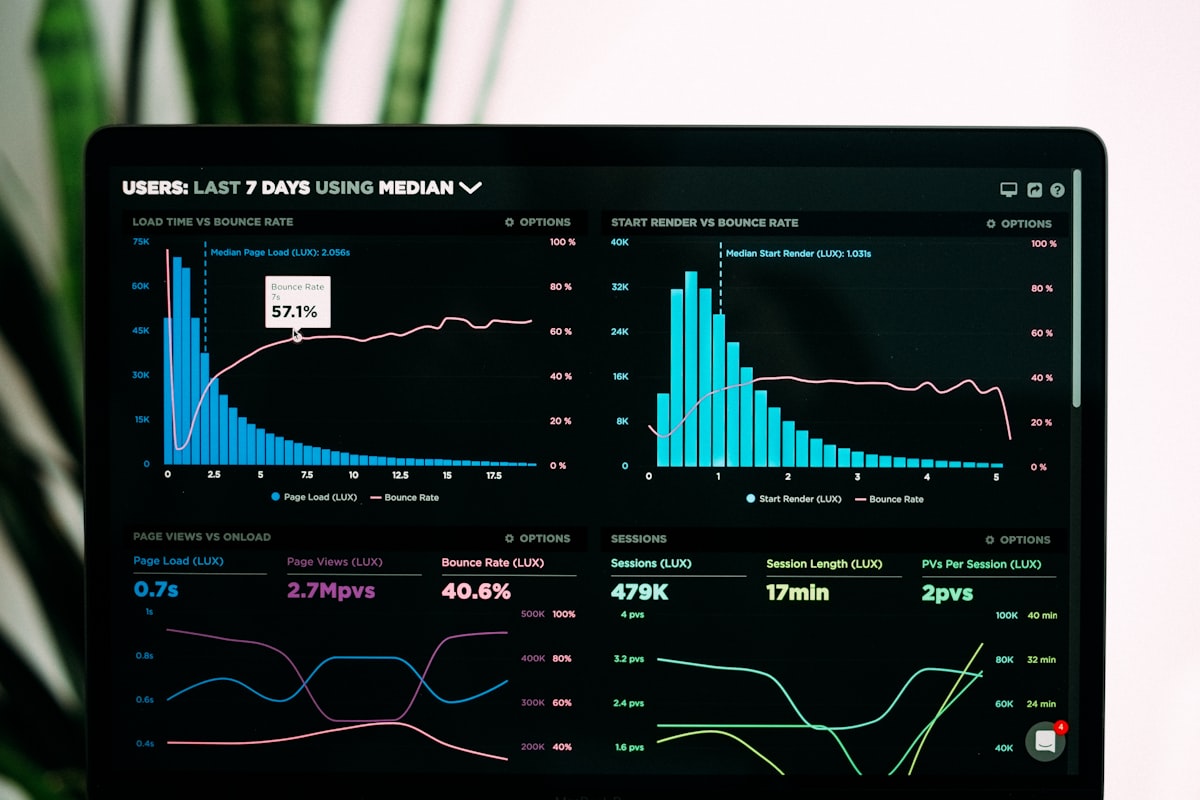Your Wix website is more than just a digital presence—it's a powerful business tool. But without proper analytics, you're navigating in the dark. Wix Analytics provides the insights you need to understand visitor behavior, optimize user experience, and drive conversions. This comprehensive guide will help you transform raw data into actionable strategies that elevate your website's performance.

Why Website Analytics Matter
Data-driven decisions separate successful websites from stagnant ones:
- Understand Your Audience: Know who visits and what they want
- Optimize User Experience: Identify friction points in visitor journeys
- Improve Conversions: Discover what works and what doesn't
- Measure Marketing ROI: Track campaign effectiveness
- Make Informed Updates: Base changes on evidence, not assumptions
Key Statistic
Businesses that actively use website analytics see 45% higher conversion rates and 30% more traffic than those that don't track performance.
Essential Wix Analytics Metrics to Track
Visitor Count
Total visitors and unique visitors over time
Traffic Sources
Where your visitors come from (organic, social, direct)
Behavior Flow
How visitors navigate through your site
Bounce Rate
Percentage of single-page visits
Session Duration
Average time spent on your site
Conversion Rate
Percentage of visitors who complete goals
Setting Up Wix Analytics for Success
1. Enable Essential Tracking
Ensure you're capturing critical data:
- Activate Google Analytics integration
- Set up conversion tracking
- Enable e-commerce tracking if applicable
- Configure goal tracking for key actions
- Install Facebook Pixel for ad tracking
Pro Tip
Use Wix's built-in Analytics Assistant to automatically set up tracking for your specific business type.
2. Define Key Performance Indicators (KPIs)
Identify metrics that align with business goals:
- For e-commerce: Conversion rate, average order value
- For lead generation: Form submissions, contact clicks
- For content sites: Page views, time on page
- For portfolios: Project views, contact requests
3. Create Custom Dashboards
Build dashboards that focus on your priorities:
- Sales performance dashboard
- Traffic acquisition overview
- Content engagement metrics
- Marketing campaign tracker

Interpreting Your Wix Analytics Data
Understanding Traffic Sources
Analyze where your visitors come from:
- Organic Search: Visitors from search engines
- Direct Traffic: Visitors typing your URL directly
- Social Media: Traffic from social platforms
- Referral Traffic: Visitors from other websites
- Paid Traffic: Visitors from advertising campaigns
"Websites that regularly analyze traffic sources and adjust their marketing strategy see 55% more growth than those that don't."
Analyzing User Behavior
Discover how visitors interact with your site:
- Top Pages: Identify popular content
- Exit Pages: Discover where visitors leave
- Click Heatmaps: Visualize interaction hotspots
- Scroll Depth: Measure content engagement
- Form Abandonment: Find where prospects drop off
Insight Tip
Combine Wix Analytics with session recording tools to watch real visitor interactions and identify UX issues.
Turning Data into Action: Optimization Strategies
1. Improve High-Bounce Rate Pages
Strategies for pages with high exit rates:
- Enhance page loading speed
- Improve content relevance and quality
- Add clear calls-to-action
- Optimize for mobile experience
- Ensure visual appeal and readability
2. Optimize Conversion Funnels
Increase conversions at each stage:
- Identify drop-off points in your funnel
- Simplify multi-step processes
- Add trust elements at critical decision points
- Test different CTA placements and wording
- Implement exit-intent popups for abandoning visitors

3. Enhance Content Performance
Use data to create better content:
- Create more content around popular topics
- Update and improve underperforming content
- Optimize headlines based on click-through rates
- Add internal links to high-value pages
- Structure content for better scannability
Need Expert Analytics Help?
Our analytics specialists can set up tracking and create a custom optimization plan for your website
GET ANALYTICS CONSULTATIONAdvanced Wix Analytics Techniques
1. Custom Event Tracking
Track specific user interactions:
- Button clicks and form submissions
- Video engagement and play rates
- File downloads and resource access
- Scroll depth and content engagement
- Outbound link clicks
2. E-commerce Tracking
For online stores, track key metrics:
- Product performance and sales trends
- Shopping cart abandonment rate
- Customer lifetime value
- Sales by traffic source
- Checkout funnel analysis
E-commerce Insight
Wix stores that implement advanced e-commerce tracking see 35% higher conversion rates by identifying and fixing funnel issues.
3. Segmentation for Deeper Insights
Analyze different visitor groups separately:
- New vs. returning visitors
- Traffic source segments
- Device type (mobile vs. desktop)
- Geographic location
- Behavior-based segments

Common Analytics Mistakes to Avoid
Steer clear of these data pitfalls:
- Tracking Without Goals: Collecting data without clear objectives
- Ignoring Mobile Data: Not analyzing mobile separately
- Vanity Metrics Focus: Prioritizing flashy numbers over actionable insights
- Infrequent Analysis: Checking data only occasionally
- Not Testing Changes: Making updates without A/B testing
- Data Silos: Not integrating analytics with other tools
Wix Analytics Reporting Best Practices
Create effective reports that drive action:
- Set Regular Reporting Schedule: Weekly, monthly, quarterly
- Focus on Key Metrics: Highlight what matters most
- Provide Context: Compare to previous periods
- Visualize Data: Use charts and graphs for clarity
- Include Actionable Insights: Recommendations based on data
- Track Progress Toward Goals: Show movement on KPIs
Reporting Tip
Use Wix's automated report scheduling to send performance updates to stakeholders regularly.
Conclusion: Becoming Data-Driven
Wix Analytics transforms your website from a static online presence into a dynamic business growth engine. By consistently tracking, analyzing, and acting on your website data, you'll make informed decisions that improve user experience, increase conversions, and drive business growth.
Remember that analytics is an ongoing process, not a one-time setup. Commit to regular data review, establish a testing culture, and always tie your findings back to business objectives. With Wix Analytics as your compass, you'll navigate the digital landscape with confidence and purpose.
Final Thought
The most successful websites aren't those with the most traffic, but those that best understand and serve their visitors. Wix Analytics provides the insights to transform visitors into customers and data into growth.
